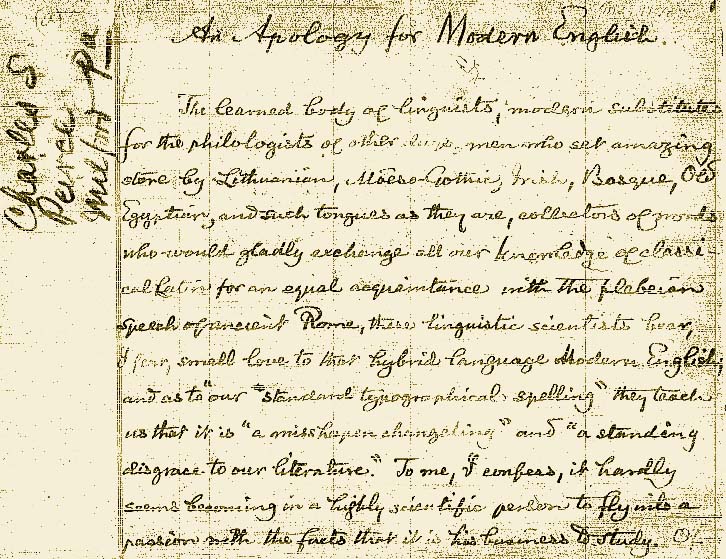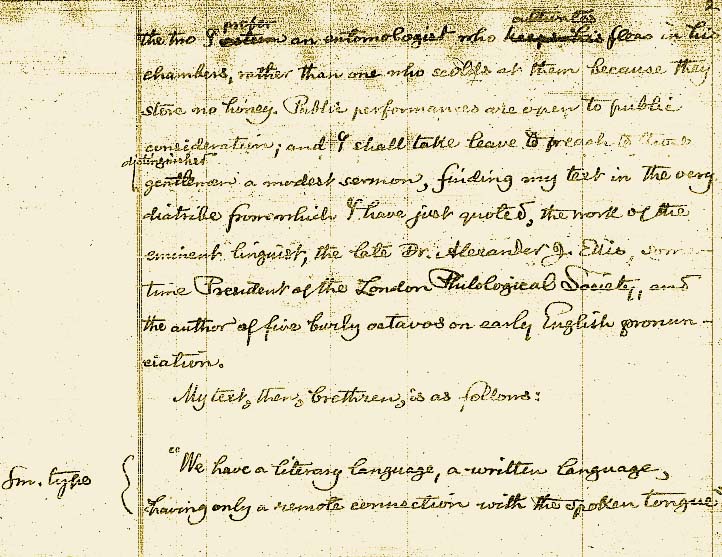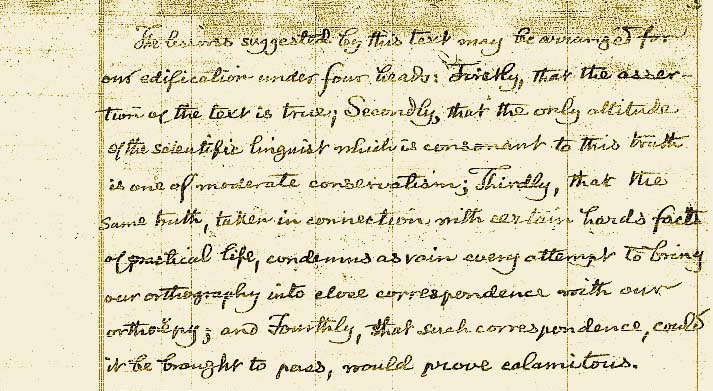
The learned body of linguists, modern substitutes for the philologists of other days men who set amazing store by Lithuanian, Moeso-Gothic, Irish, Basque, Old Egyptian, and such tongues as they are, collectors of words who would gladly exchange all our knowledge of classical Latin for an equal acquaintance with the plebeian speech of ancient Rome, these linguistic scientists, bear & fear, small love their hybrid language Modern English, and as to "our standard typographical spelling" they teach us that that it is "a misshapen changeling" and "a standing disgrace to our literature". To me, I confess, it hardly seems becoming in a highly scientific person to fly into a passion with the facts that it is his business to study.


